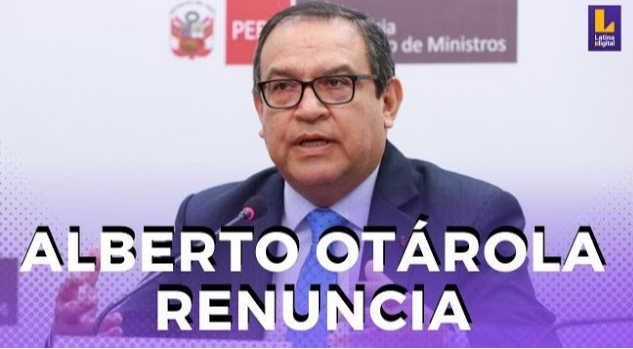
By Roberto Morejón
The recent resignation of the Peruvian head of government and his forced replacement are new chapters of the accentuated political crisis, a phenomenon with no end in sight.
Prime Minister Alberto Otárola resigned after the dissemination of an audio of a conversation with a sentimental partner, whom he allegedly benefited with a labor contract in an irregular way.
The scandal adds more ingredients to the popular rejection of a political class often linked to corruption and prone to maneuvering in Congress in favor of the interests of right-wing parties.
Otárola is considered the right-hand man of president-designate Dina Boluarte, who assumed power after Congress abruptly removed then president Pedro Castillo, whom she accused of staging a self-coup.
Boluarte and Otárola are accused of playing key roles in the repression of the protests that followed Castillo's deposition, which left 49 people dead.
Otárola's fall and his replacement by the ambassador to the OAS, Gustavo Adrianzén, comes at a time of political upheaval, as former dictator Alberto Fujimori made his first statements since his release after a controversial pardon.
The old man who ruled the South American country with an iron fist between 1990 and 2000 provoked his compatriots by expressing his opinion on what he calls the political validity of Fujimorism.
While part of society demands that Fujimori serve his full sentence in jail, darts are also thrown against Otárola and the Congress.
The resigned prime minister maintained excellent ties with the legislature, controlled by the right wing and ultraconservatives, among them Fujimori's followers.
Not by chance, the Congress, the judiciary, President-designate Dina Boluarte and the political class in general are notoriously unpopular among Peruvians.
They do not seem to be willing to change course even if they engage in periodic confrontations, because in the end they reach the same conclusion: to maintain control of the country at all costs.
The new prime minister is heading towards continuity and nothing indicates an attempt to recover the image of the institutions, battered by the acts of corruption involving four heads of state.
Peru has had six presidents since 2018 and ministers are short-lived in their posts, enough for politicians to erase core issues such as labor informality and poverty from their agenda.

